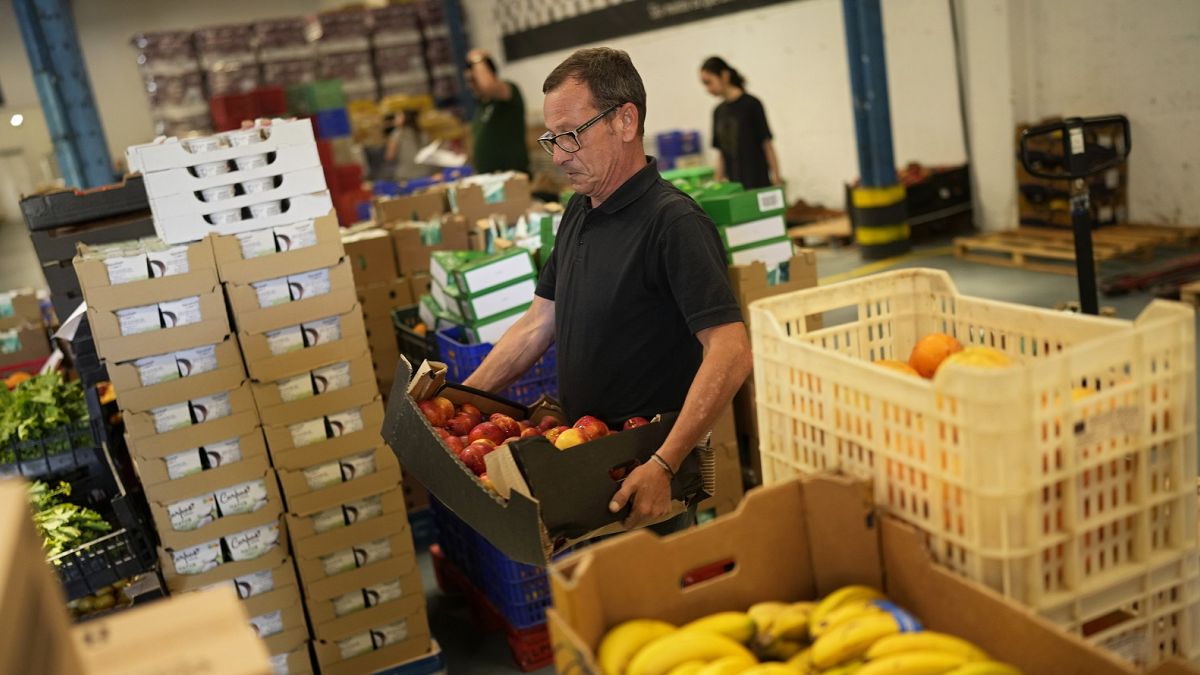In 2022, 8.3% of people in the EU were unable to afford a meal containing meat, fish or a vegetarian equivalent every second day, according to new Eurostat data.
The figure was a percentage point higher than the previous year.
Nearly a fifth (19.7%) of Europeans at risk of poverty were unable to afford a proper meal last year, up more than two percentage points from 2021.
The share of the total population unable to afford a proper meal was highest in Eastern European countries with Romania (22.1%) leading the pack, followed by Bulgaria (21.6%) and Slovakia (15.8%)
Ireland (1.4%) recorded the lowest share, followed by Cyprus (1.5%) and Luxembourg (1.8%).
The highest share of the population considered at risk of poverty unable to afford a proper meal was recorded in Bulgaria (44.6%).
There were 95.3 million people in the EU at risk of poverty or social exclusion in 2022, equivalent to 21.6 % of the EU population.
The findings highlight an increasingly precarious situation for people living in poverty across the bloc.
The Russian invasion of Ukraine had a considerable impact on food commodity markets last year. EU annual inflation reached its highest level ever, with the price of food and non-alcoholic beverages rising by an average of 11.9% in the EU.
Prices have continued to rise in the first quarter of 2023.
Food inflation has also been driven by a reduced supply of agricultural products such as feed and fertilisers. Russia halted seaborne agricultural exports from Ukraine via Black Sea routes until the Black Sea Grain initiative was introduced in July 2022, further exacerbating food security.
Disruptions caused by extreme weather and drought have led to shortages in the agri-food chain.
Consumer associations claim that supermarkets have also gouged prices to pass on inflated costs of production to consumers.
Many EU member states recorded a record number of people applying to food banks in 2022.
